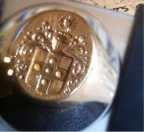Blue Highways Revisited
I'm reading my father's copy of William Least Heat Moon's Blue Highways. Early in the book he explains how the state of Missouri is perceived by the rest of the country: 'A Missourian gets used to Southerners thinking him a Yankee, a Northerner considering him a cracker, a Westerner sneering at his effete Easternness, and an Easterner taking him for a cowhand.'
As I am exhausted by the political season and sorrowful for the difficulties that face so many on the east coast it is good to be reminded of how special and human we can be. Let us all bring this to the fore.
The image below is from http://tywkiwdbi.blogspot.com/2012/10/blue-highways-journey-into-america.html and shows the route of the author's 'journey into America.'
Here is a synopsis from wikipedia:
Blue Highways is an autobiographical book by William Least Heat-Moon, born William Trogdon.
As I am exhausted by the political season and sorrowful for the difficulties that face so many on the east coast it is good to be reminded of how special and human we can be. Let us all bring this to the fore.
The image below is from http://tywkiwdbi.blogspot.com/2012/10/blue-highways-journey-into-america.html and shows the route of the author's 'journey into America.'
Here is a synopsis from wikipedia:
Blue Highways is an autobiographical book by William Least Heat-Moon, born William Trogdon.
In 1978, after separating from his wife and losing his job as a teacher, Moon, 38 at the time, decided to take an extended road trip around the United States, sticking to only the "Blue Highways." Heat-Moon had coined the term to refer to small, forgotten, out of the way roads connecting rural America (which were drawn in blue on the old style Rand McNally road atlas).
He outfits a green van with a bunk, a camping stove, a portable toilet and a copy of Walt Whitman's Leaves of Grass and John Neihardt's Black Elk Speaks. Referring to the Native American resurrection ritual, he christens the van "Ghost Dancing," and embarks on a three month soul-searching tour of the United States, wandering from small town to small town, often just because they have interesting names. The book chronicles the 13,000 mile journey and the people he meets along the way, as he steers clear of cities and interstates, avoiding fast food and exploring local American culture.
Well-researched and intriguing stories and historical facts are included about each area visited, as well as verbatim conversations with characters such as a born-again Christian hitchhiker, a teenage runaway, a boat builder, an Appalachian log cabin restorer, a Nevada prostitute, fishermen, a Hopi Native American medical student, owners of western saloons and remote country stores, a maple syrup farmer, and Chesapeake Bay island dwellers. Blue Highways also inspired the name of the Cocteau Twins seventh recording, Four-Calendar Cafè. In his book, Least Heat-Moon develops an apocryphal rule for judging the quality of the food being served in roadside cafès by counting the number of calendars affixed behind the counter--the number of calendars registered the amount of traveling salesmen who frequented the establishment,and an establishment with at least four calendars meant good, but not great food.




<< Home